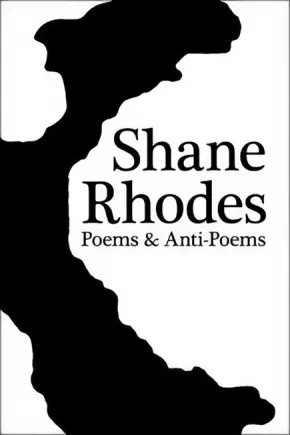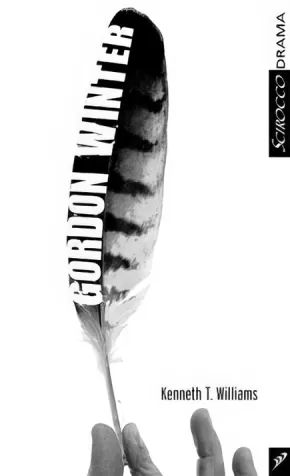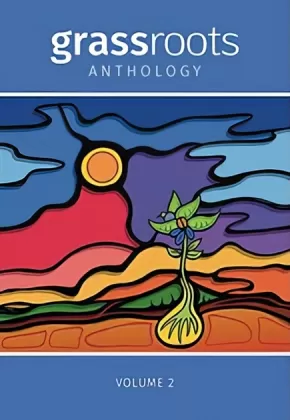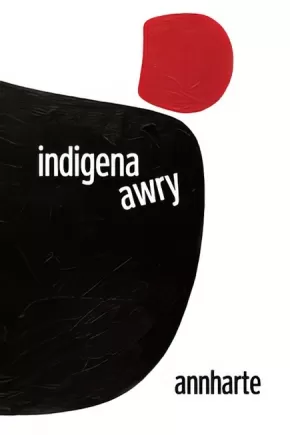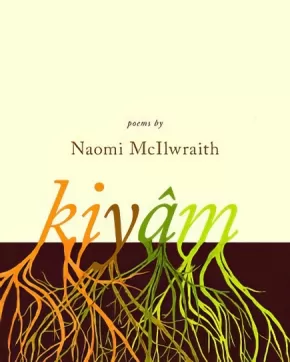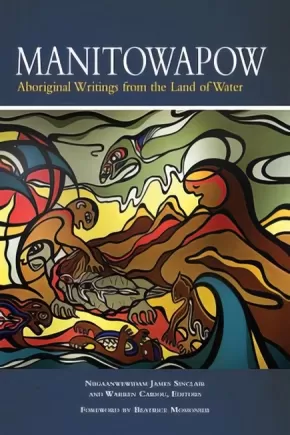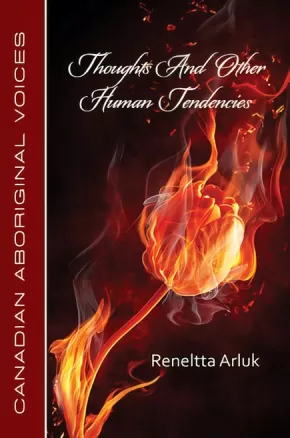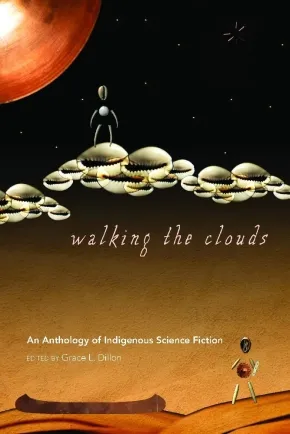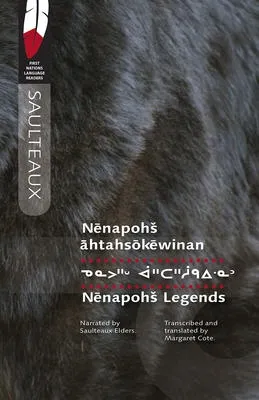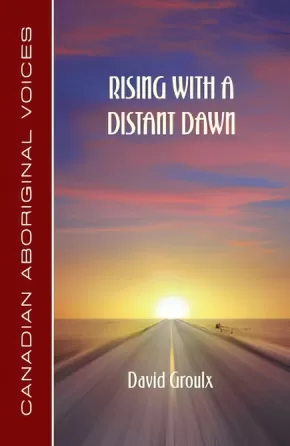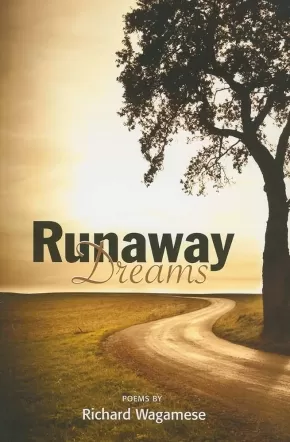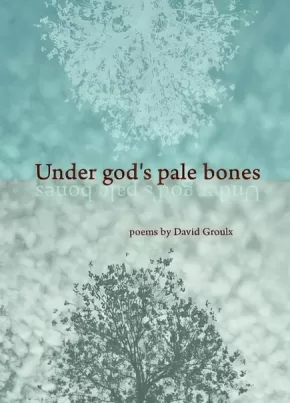
Fiction
511
-
525
of
568 Results;
Sort By
Go To
of 38
The Unplugging
$16.95
Format:
Paperback
Text Content Territories:
Indigenous Canadian;
ISBN / Barcode: 9781770911321
Synopsis:
Synopsis:
In a post-apocalyptic world, Bern and Elena are exiled from their village. Their crime? The two women are no longer of child-bearing age.
Forced to rely upon traditional wisdom for their survival, Elena and Bern retreat from the remains of civilization to a freezing, desolate landscape where they attempt to continue their lives after the end of the world. When a charismatic stranger from the village arrives seeking their aid, the women must decide whether they will use their knowledge of the past to give the society that rejected them the chance at a future.
Additional Information
80 pages | 5.36" x 8.39"
X: Poems & Anti-Poems
$18.95
Format:
Paperback
Text Content Territories:
Indigenous Canadian;
ISBN / Barcode: 9780889712881
Synopsis:
Synopsis:
One of the first lines of X, Shane Rhodes' sixth book of poetry, is a warning: "this book of verse demands more of verse, this book demands perversity."
In X, Rhodes takes poetry from the comfortable land of the expected to places it has seldom been. Writing through the detritus of Canada's colonization and settlement, Rhodes' writes poems to and with Canada's original documents of finding and keeping. He writes a poem to each of the eleven numbered treaties (the Post Confederation Treaties between many of Canada's First Nations and the Queen of England)--he writes to the fonts he finds in Treaty 5, the river he finds in Treaty 6, and the chemicals he finds in Treaty 8. Rhodes' writes poems to and with the Indian Act.
Beyond the treaties, Rhodes writes formal poetry using Indian status registration forms. He writes to the memory of Oka. He writes to the Government of Canada's Apology for the Indian Residential School System. He writes to the procreating beavers he finds in the Royal Charter of the Hudson Bay Company. X culminates in "White Noise," a long poem grown from Canada's collective rants, threats, cries and shouts in response to the Idle No More protests and the hunger strike of Chief Theresa Spence.
Through out the book, Rhodes surprises with what poetry and art can actually do with the seemingly unsalvageable and un-poetic that surrounds us. The design of X is also exhilarating. Not only is the book reversible--it must be read in two directions--but every page bursts with design, interference and thought.
X sings a new national anthem for Canada, an anthem stripped of patriotic fervor that truly sings of the past many would rather forget and the current state of Indigenous/settler race relations in Canada, an anthem fit for "a land held by therefores, herebys and hereinafters."
Gordon Winter
$14.95
Format:
Paperback
Text Content Territories:
Indigenous Canadian; First Nations;
ISBN / Barcode: 9781897289723
Synopsis:
Synopsis:
Gordon Winter is an RCMP hero, a life-long champion of First Nations rights, and a bigot. He's challenging the next generation of chiefs to stand up to the federal government when he spews a Nazi-inspired racist and homophobic rant. Suddenly, one of the most revered First Nations leaders is now one of the most reviled human beings in Canada. While most want to consign Winter to the dustbin of history, some are quick to defend a man who did so much good in his life. Questions get asked: how should society respond to such outrageous comments from a prominent and public figure? Is it right to condemn a man based on just one moment of his life? Where did these convictions come from?
The play moves forward in following Winter as he fights the criminal charge of inciting hate. It also moves backwards to show why Queen Elizabeth II pinned a medal of bravery onto his chest in the 70s, and to a critical moment in his childhood when the seeds of hate were planted by a small act of kindness.
Grassroots Anthology Volume 2
$9.95
Format:
Paperback
Text Content Territories:
Indigenous Canadian;
Synopsis:
Our second instalment of Grassroots Anthology, this beautiful, 95 page book, is now available!
“This volume continues the celebration of First Nations artistic perspectives. It shares even more stories, poems, paintings and photographs from talented artists and writers in Manitoba.”
MFNERC is honoured to present this work as a source of inspiration for younger generations. With this anthology we hope to inspire young people to develop and pursue their own creative aspirations so they may also share their stories.
Indigena Awry
$19.00
Format:
Paperback
Text Content Territories:
Indigenous Canadian;
ISBN / Barcode: 9781554200672
Synopsis:
Synopsis:
NDN word warrior Marie Annharte Baker's fourth book of poems, Indigena Awry, is her largest and wildest yet. It collects a decade's worth of verse — fifty–nine poems.
Set noticeably in Winnipeg and Vancouver, but in many other places on either side of the Medicine Line as well, the poems are a laser–eyed meander through contested streets filled with racism, classism, and sexism. Shot through with sex and violence and struggle and sadness and trauma, her work is always set to detect and confront the delusions of colonialism and its discontents.
These poems are informed by a sceptical spirituality. They call for justice for NDNs through the Permanent Resistance that goes around in cities. This is bruising and exacting stuff, but Annharte is also one of poetry's best jokers.
In Indigena Awry, you can find fictitious girl gangs coexisting with real boy ones. NDN grannies may be found flirting salaciously in some internet chat room. One might use duct tape to prevent a war. You might be worried that hand–signalling for a Timbit on an airplane flight will be considered a terrorist act.
Annharte may be seam–walking a singular path but she is not without allies. In the United States, they could include Leslie Marmon Silko and Chrystos. In Canada, Beth Brant and Gerry Gilbert. The jazz inflections of Beat writing are often apparent in her work. She swings from a poetic madness into a mad poetics. Way under it all, acting as a deep sort of platform, could be considered the Kenyan writer Ngugi wa Thiong'o's project of decolonizing one's mind. Both sketch out an argument that we will not see, feel, or respond correctly in or to our own lives without doing this, because otherwise we will be living within a philosophical myopia generated by a bad fiction.
While Indigena Awry is written for NDN persons, it is highly recommended for truth–seekers of every nature and anarchs of word and spirit. In an Annharte poem you might lose your way only to find what's important.
Kiyam: Poems
$16.99
Format:
Paperback
Text Content Territories:
Indigenous Canadian; First Nations; Anishinaabeg; Ojibway; Cree (Nehiyawak);
Grade Levels: University/College;
ISBN / Barcode: 9781926836690
Synopsis:
Synopsis:
Through poems that move between the two languages, McIlwraith explores the beauty of the intersection between nêhiyawêwin, the PlainsCree language, and English, âkayâsîmowin. Written to honour her father's facility in nêhiyawêwin and her mother's beauty and generosity as an inheritor of Cree, Ojibwe, Scottish, and English, kiyâm articulates a powerful yearning for family,history, peace, and love.
Manitowapow: Aboriginal Writings from the Land of Water
$35.00
Editors:
Format:
Paperback
Text Content Territories:
Indigenous Canadian; First Nations; Inuit; Métis;
ISBN / Barcode: 9781553793076
Synopsis:
Synopsis:
This anthology of Aboriginal writings from Manitoba takes readers back through the millennia and forward to the present day, painting a dynamic picture of a territory interconnected through words, ideas, and experiences. A rich collection of stories, poetry, nonfiction, and speeches, it features:
- Historical writings, from important figures.
- Vibrant literary writing by eminent Aboriginal writers.
- Nonfiction and political writing from contemporary Aboriginal leaders.
- Local storytellers and keepers of knowledge from far-reaching Manitoba communities.
- New, vibrant voices that express the modern Aboriginal experiences.
- Anishinaabe, Cree, Dene, Inuit, Métis, and Sioux writers from Manitoba.
Educator & Series Information
Created in the spirit of the Anishinaabe concept debwe (to speak the truth), The Debwe Series is a collection of exceptional Aboriginal writing from across Canada. Manitowapow, a one-of-a-kind anthology, is the first book in The Debwe Series. Manitowapow is the traditional name that became Manitoba, a word that describes the sounds of beauty and power that created the province.
Recommended for grades 11 and 12, university students, and adults.
Additional Information
416 pages | 6.00" x 9.00"
The Trees Are Still Bending South (1 in stock Out of Print)
$15.00
Format:
Paperback
Text Content Territories:
Indigenous Canadian; Métis;
ISBN / Barcode: 9780986874024
Synopsis:
Synopsis:
This book is one woman's examination of her role as an otepayemsuak, a Métis, in this 500-year era of resistance and change. We are in a time when many Indigenous prophecies are reaching into the present - those of the ancient Mayan, the Hopi, the Iroquois, the Cree, the Métis. As with the ancient Mayan, where December 12, 2012, marks the end of the long count calendar, according to the prophecy of the Mohawk's seventh generation, we have reached the time to restore Indigenous stewardship of the land. The words that follow the title of the first chapter of the trees are still bending south, are those of Louis Riel: "My people will sleep for one hundred years. When they awake, it will be the artists that give them back their spirit."
Thoughts and Other Human Tendencies
$16.95
Format:
Paperback
Text Content Territories:
Indigenous Canadian;
ISBN / Barcode: 9781926956145
Synopsis:
Synopsis:
A poetry collection where stories of life’s experiences are distilled into feelings and thoughts that are universal. Reneltta Arluk weaves the traditional and the contemporary together through the eyes of a young Aboriginal woman. Her poems, both sacred and secular, are written with the passions of anger, grief, and love, at once tender and furious. Here are tales of love, betrayal, courage, defeat, acceptance, loss, grief, passion, delight, courting, coming of age, birth and death, youth and old age, hunting and surviving. The poems are united by the history of her ancestors and the ongoing struggle to define what it means to be a tribal member, an Aboriginal, and a woman in the twenty first century.
Educator & Series Information
This book is part of the Canadian Aboriginal Voices series.
Additional Information
|
Walking the Clouds: An Anthology of Indigenous Science Fiction
$33.95
Editors:
Format:
Paperback
Text Content Territories:
Indigenous American; Indigenous Australian; Indigenous Canadian; Indigenous New Zealander;
ISBN / Barcode: 9780816529827
Synopsis:
Synopsis:
In this first-ever anthology of Indigenous science fiction, Grace Dillon collects some of the finest examples of the craft with contributions by Native American, Canadian First Nations, Aboriginal Australian, and New Zealand Maori authors. The collection includes seminal authors such as Gerald Vizenor and Eden Robinson, historically important contributions often categorized as “magical realism” by authors like Leslie Marmon Silko and Sherman Alexie, and authors more recognizable to science fiction fans like William Sanders and Stephen Graham Jones. Dillon’s engaging introduction situates the pieces in the larger context of science fiction and its conventions.
Additional Information
272 pages | 6.00" x 9.00"
Nenapohs Legends
$19.95
Format:
Paperback
Text Content Territories:
Indigenous Canadian; First Nations; Anishinaabeg; Ojibway; Saulteaux;
Grade Levels: University/College;
ISBN / Barcode: 9780889772199
Synopsis:
Synopsis:
These seven tales are the traditional teaching stories of Nenapohs, the Saulteaux culture hero and trickster. Oral in origin, they have been passed on through generations by the traditional teachers, the Elders.
For the first time, they are published and made available in Nahkawewin or Saulteaux, the westernmost dialect of the Ojibwe language. Each story is illustrated and is presented in both Standard Roman Orthography and syllabics, with English translation. The book also includes a pronunciation guide and a Saulteaux-to-English glossary.
Educator & Series Information
Nenapohs Legends is part of the First Nations Language Readers series. With a mix of traditional and new stories, each First Nations Language Reader introduces an Indigenous language and demonstrates how each language is used today. The University of Regina Press’s long-term goal is to publish all 60+ Indigenous languages of Canada.
Additional Information
112 pages | 5.50" x 8.50" | Narrated by Saulteaux Elders, Transcribed and Translated by Margaret Cote
Red Rooms
$18.95
Format:
Paperback
Text Content Territories:
Indigenous Canadian;
Grade Levels: University/College;
ISBN / Barcode: 9781926886176
Synopsis:
Synopsis:
Red Rooms is a unique journey articulating the lives of the Native patrons of an urban hotel as seen through the eyes of the hotels cleaning lady. The characters face the crises in their lives in ways that are easily identifiable and not uncommon to Native people. What is unique about this collection of stories is Dimaline's sometimes cryptic, sometimes comedic, always compassionate and visionary housekeeper who offers hindsight, insight and foresight to the reader in the representation of their lives."Haunting and complex Red Rooms is the Native Rosetta Stone. A lovely tour de force from an up-and-coming writer to watch."Eden Robinson
Rising with a Distant Dawn
$14.95
Format:
Paperback
Text Content Territories:
Indigenous Canadian;
ISBN / Barcode: 9781926956053
Synopsis:
Synopsis:
Rising with a Distant Dawn is a powerful and moving poetry collection, which stretches across the boundaries of skin colour, language, and religion to give voice to the lives and experiences of ordinary Aboriginal Canadians. The poems embrace anguish, pride, and hope. They come from the woodlands and the plains, they speak of love, of war, and of the known and the mysterious, they strike with wisdom, joy, and sadness, bringing us closer than ever before to the heart of urban Aboriginal life. The book captures timely personal and cultural challenges, and ultimately shares subtle insight and compassion.
Educator & Series Information
This book is part of the Canadian Aboriginal Voices series.
Additional Information
|
Runaway Dreams (17 in Stock) - ON SALE
$12.00 $15.95
Format:
Paperback
Text Content Territories:
Indigenous Canadian; First Nations; Anishinaabeg; Ojibway;
ISBN / Barcode: 9781553801290
Synopsis:
Synopsis:
Having developed a large reputation for his many novels and nonfiction works, Richard Wagamese now appears before us as a poet, with a collection of stunning poems ranging over a broad landscape. He begins with an immersion in the immemorial landscape where “the ancient ones stand at your shoulder . . . making you a circle / containing everything.” These are Medicine teachings told from the experience of one who lived and still lives them. He describes his life on the road when he repeatedly ran away at an early age, and the beatings he received when the authorities tried “to beat the Indian right out of me.” Yet even in the most desperate situations, Wagamese shows us Canada as seen through the eyes and soul of a well-worn traveller, with his love of country, his love of people. Through it all, there are poems of love and music, the language sensuous and tender.
Additional Information
100 pages | 9.00" x 6.00"
Under God's Pale Bones
$15.00
Format:
Paperback
Text Content Territories:
Indigenous Canadian;
ISBN / Barcode: 9780978499884
Synopsis:
Synopsis:
David Groulx’s Under God’s Pale Bones traces back 500 years through the drumbeat, through a history of genocide. Groulx's poems rumble through night skies, speaking of ink and blood as they split the darkness, calling on spiritual strength and ancestral medicine.
“This is a reunion, ready to drink like a good Calvados from Northern France aged until the vintage is ready to be unveiled, shared. These poems are the impressions my world has left on me. The world beneath God’s pale bones.” —David A. Groulx
Sort By
Go To
of 38




